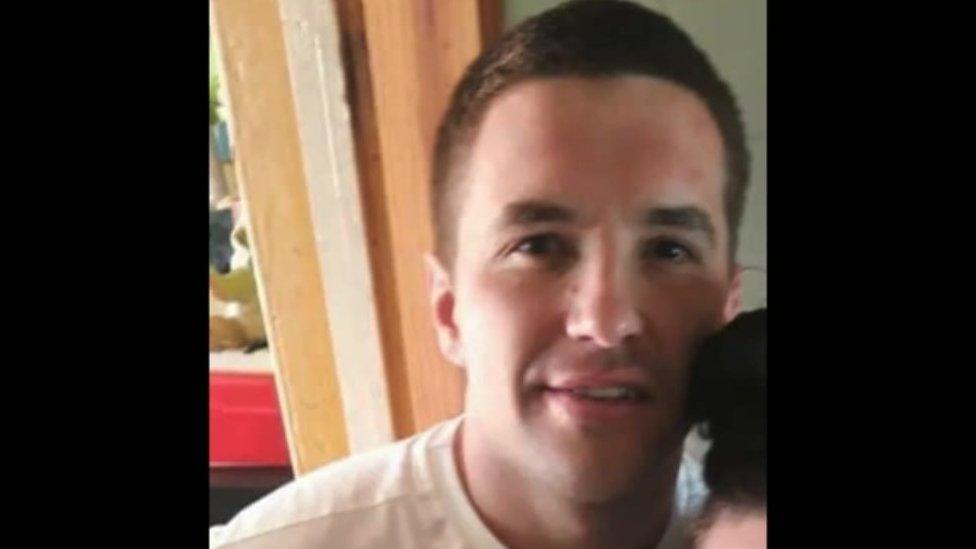Durham Prison death inquest considers if restraint caused death
- Published

As a teenager Michael Smith had been a promising footballer
An inquest jury has been told to consider if restraint techniques used on a prisoner led to his death.
Michael Smith was found hanged in his cell at Durham Prison in July 2020.
His father had warned he was a suicide risk but this information was not passed on.
Senior assistant coroner Crispin Oliver told jurors at the inquest in Crook they must also consider if a lack of a medical assessment at the prison led to the 32-year-old's death.
The inquest heard Smith had an outgoing personality and, as a talented footballer, had been signed by Leeds United as a 15-year-old before being injured.
But jurors were told he became addicted to crack cocaine and heroin and had been jailed for robbery.

Smith's father's warning were not passed on
After his release he was sent back to Durham Prison for breaking the terms of his licence.
On arrival he was restrained twice by three prison officers escorting him to the segregation unit.
There a body scanner found he had concealed drugs but these were not taken from him.
The inquest was told his father's warnings that he was a suicide risk were not passed on.
Summing up, Mr Oliver said the jury "must consider whether the manner of control and restraint and a failure to de-escalate contributed to Michael's death" the following day.
He said they must also consider the "absence of any mental health assessment" between the point Smith arrived in the prison and him being found dead in his cell.
They must also examine the "absence of a medical assessment" during that same period, he said.
The jury has retired to consider its verdict.

Follow BBC North East & Cumbria on Twitter, external, Facebook, external and Instagram, external. Send your story ideas to northeastandcumbria@bbc.co.uk, external.